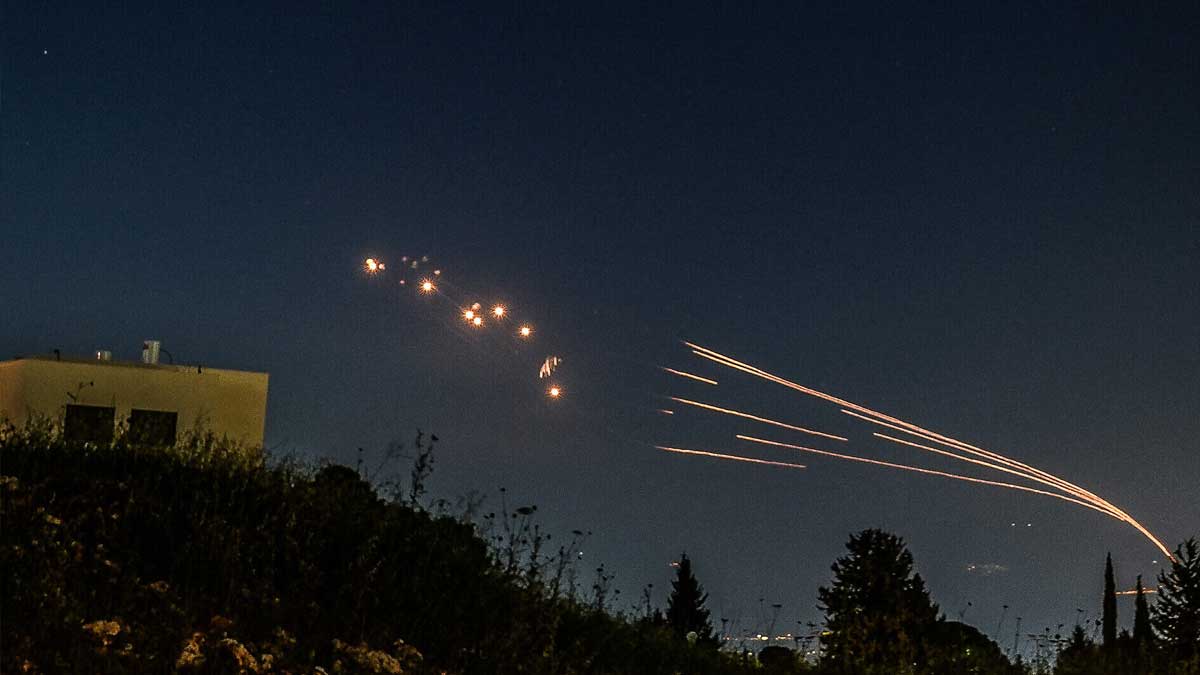- Home
- Billionaires
- Investing Newsletters
- 193CC 1000
- Article Layout 2
- Article Layout 3
- Article Layout 4
- Article Layout 5
- Article Layout 6
- Article Layout 7
- Article Layout 8
- Article Layout 9
- Article Layout 10
- Article Layout 11
- Article Layout 12
- Article Layout 13
- Article Layout 14
- Article Sidebar
- Post Format
- pages
- Archive Layouts
- Post Gallery
- Post Video Background
- Post Review
- Sponsored Post
- Leadership
- Business
- Money
- Small Business
- Innovation
- Shop
Recent Posts
Israel-Hezbollah Clash Escalates Amid Rising War Fears

In a significant escalation of hostilities, Israel conducted a preemptive strike against Hezbollah targets in Lebanon, a move it justified as necessary to prevent an imminent attack by the militant group. The exchange marked a critical moment in the increasingly volatile situation in the Middle East, as fears of a broader conflict continue to mount and diplomatic efforts to establish a cease-fire between Israel and Hamas hang in the balance.
The incident began early Sunday morning when Israeli Prime Minister Benjamin Netanyahu announced via social media that Israel had detected preparations by Hezbollah to launch an attack on Israeli territory. In response, Netanyahu ordered the Israel Defense Forces (IDF) to initiate a series of strikes aimed at neutralizing the perceived threat. According to the IDF, approximately 100 fighter jets were deployed to target over 40 launch sites in southern Lebanon, from where Hezbollah is believed to have been preparing to fire rockets. The strikes were successful in intercepting multiple rockets that were allegedly aimed at northern and central Israel.
In his statement, Netanyahu emphasized Israel’s resolve to protect its citizens and territory. He stated, “Israel is determined to do everything to defend our country, to return the residents of the north securely to their homes and to continue upholding a simple rule: Whoever harms us – we will harm them.” This declaration underscores Israel’s long-standing policy of immediate retaliation against any perceived threats to its national security.
Hezbollah, for its part, retaliated swiftly. The group launched a barrage of 320 rockets and drones targeting 11 locations within Israel. Hezbollah claimed that this attack was the first phase of its response to Israel’s killing of its top military commander, Fu’ad Shukr, the previous month. Shukr, a senior Hezbollah figure, was reportedly responsible for orchestrating attacks against Israeli forces, including a deadly rocket strike in the Golan Heights that resulted in the deaths of more than 10 people. While Hezbollah had denied responsibility for the Golan Heights attack, Israel held Shukr accountable and vowed to make Hezbollah “pay a heavy price” for its actions.
The recent exchange between Israel and Hezbollah is part of a broader pattern of increasing hostilities between Israel and militant groups backed by Iran. Israel has been engaged in a protracted conflict with Hamas, another Iran-aligned group, which controls the Gaza Strip. Over the past few months, the conflict has expanded, with Israel conducting numerous airstrikes against Hamas targets in Gaza and killing several high-ranking Hamas leaders. Among those targeted was Ismail Haniyeh, a top Hamas leader who was reportedly killed while in Iran. Although Israel has not officially claimed responsibility for Haniyeh’s death, the incident has heightened fears of a potential retaliation by Iran or its allied groups, including Hezbollah.
The recent clashes have also resulted in casualties. Reports indicate that at least three people were killed in Lebanon as a result of Israel’s strikes, while there have been no confirmed deaths in Israel from Hezbollah’s retaliatory attacks. The human toll of this conflict is a stark reminder of the potential for further escalation and the devastating consequences it could have for the region.
As the situation continues to unfold, diplomatic efforts to prevent a full-scale war are ongoing. Hezbollah had previously indicated that it would cease hostilities if Israel and Hamas could reach a cease-fire agreement. However, negotiations for such an agreement have stalled in recent weeks. Talks were scheduled to resume in Cairo on Sunday, but the prospects for a successful resolution remain uncertain.
In the meantime, international reactions to the escalating violence have been mixed. Israel’s defense minister, Yoav Gallant, held discussions with U.S. Defense Secretary Lloyd Austin, during which the importance of avoiding regional escalation was stressed. The United States has reiterated its support for Israel, with Austin emphasizing that the U.S. stands with Israel against any attacks by Iran and its regional proxies. Similarly, U.S. Secretary of State Antony Blinken expressed support for Israel following the Golan Heights strike but also cautioned against further escalation, highlighting the delicate balance that the U.S. and other international actors must navigate in the region.
The broader geopolitical implications of the Israel-Hezbollah conflict are significant. Hezbollah is widely recognized as one of the most powerful militant groups in the Middle East, with substantial backing from Iran. Its involvement in the conflict with Israel adds a complex layer to the already fraught situation in the region, particularly as Israel continues its operations against Hamas in Gaza. The potential for the conflict to draw in other regional actors, including Iran, is a growing concern for international observers.
In conclusion, the recent exchange of fire between Israel and Hezbollah represents a critical juncture in the ongoing conflict in the Middle East. As both sides continue to engage in military actions, the risk of a wider war looms large. Diplomatic efforts to broker a cease-fire are ongoing, but the path to peace remains fraught with challenges. The international community will be closely watching the developments in the coming days and weeks, as the situation remains highly volatile and the stakes continue to rise.
Recent Posts
Categories
- 193 Countries Consortium Partner1
- 193cc Digital Assets2
- 5G1
- Aerospace & Defense48
- AI37
- Arts3
- Banking & Insurance11
- Big Data3
- Billionaires1,467
- Boats & Planes1
- Business332
- Careers13
- Cars & Bikes79
- CEO Network1
- CFO Network17
- CHRO Network1
- CIO Network1
- Cloud10
- CMO Network18
- Commercial Real Estate7
- Consultant1
- Consumer Tech194
- CxO1
- Cybersecurity73
- Dining1
- Diversity, Equity & Inclusion4
- Education7
- Energy8
- Enterprise Tech29
- Events11
- Fintech1
- Food & Drink2
- Franchises1
- Freelance1
- Future Of Work2
- Games149
- GIG1
- Healthcare79
- Hollywood & Entertainment203
- Houses1
- India’s 1000 Richest1
- Innovation46
- Investing2
- Investing Newsletters4
- Leadership65
- Lifestyle11
- Manufacturing1
- Markets20
- Media327
- Mobile phone1
- Money13
- Personal Finance2
- Policy569
- Real Estate1
- Research6
- Retail1
- Retirement1
- Small Business1
- SportsMoney42
- Style & Beauty1
- Success Income1
- Taxes2
- Travel10
- Uncategorized14
- Vices1
- Watches & Jewelry2
- world's billionaires1,436
- Worlds Richest Self-Made Women2
Related Articles
South Korea Plane Crash: A Tragic Loss and Global Mourning
The tragic plane crash at South Korea’s Muan International Airport on Sunday...
By 193cc Agency CouncilDecember 30, 2024H-1B Visa Debate Splits Trump Allies and Silicon Valley
The debate over H-1B visas has once again become a contentious issue,...
By 193cc Agency CouncilDecember 28, 2024Trump Moves $4B Stake in Truth Social Parent, Stock Drops 6%
Donald Trump recently transferred his 57% stake in Trump Media & Technology...
By 193cc Agency CouncilDecember 20, 2024House Rejects Trump-Backed Funding Bill, Shutdown Looms
The U.S. House of Representatives rejected a new government funding bill on...
By 193cc Agency CouncilDecember 20, 2024















Leave a comment